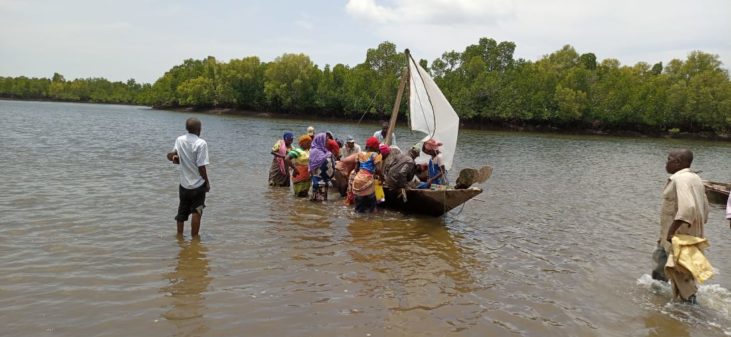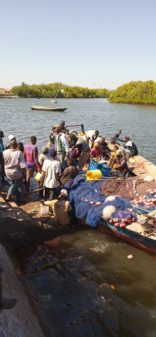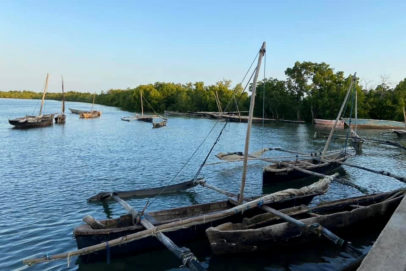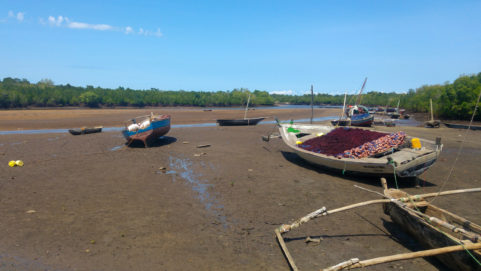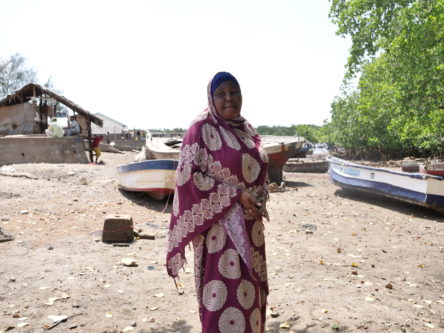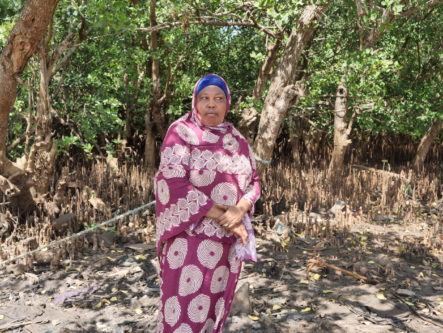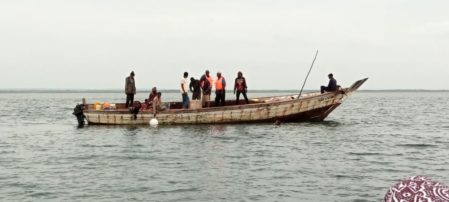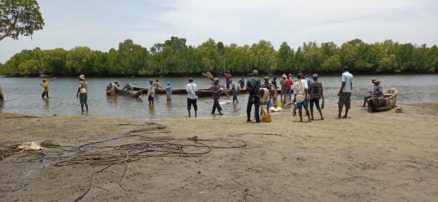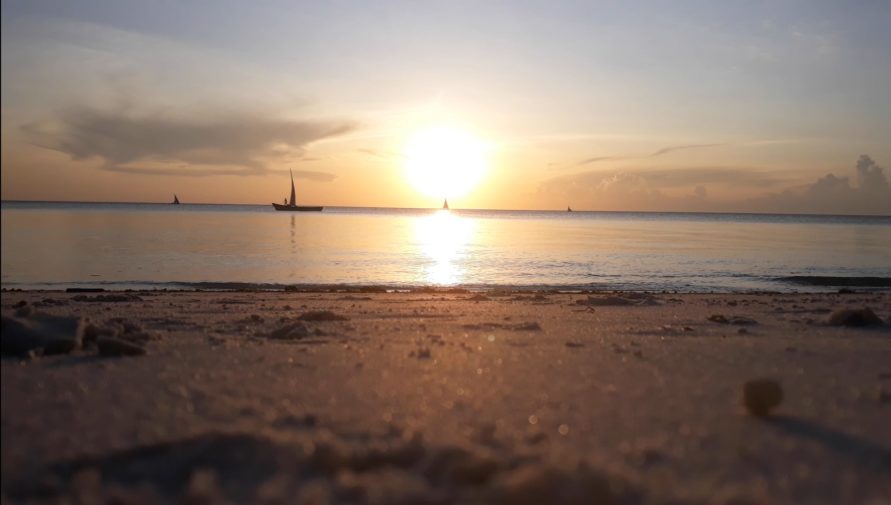Through action and change for equality
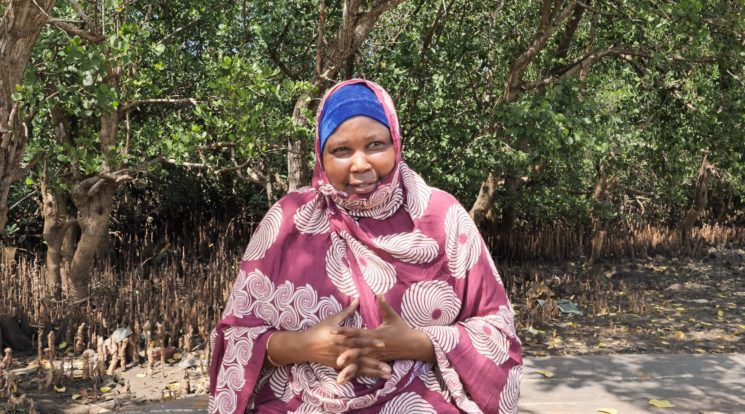
Mwanatumu during our meeting at the Vanga fisheries dock | Photo: Randall Mabwa
The role of women in the fisheries sector cannot be further emphasized as they are key actors and players in forging connections between fishers and the market. While a fisherman’s role may mainly involve going out to sea to catch fish, the ladies are the connection between sea and plate – the market and end-point for the catch of the day.
Despite this important connection, the involvement of women in the leadership of Beach Management Units (BMUs – these are community-led fisheries management units) is still quite low with very few women getting the chance to go into leadership. For those that take this route, are met by multiple challenges and resistance but still weather the situation to emerge as good leaderships initiating change in fisher communities. In many areas of the Western Indian ocean and specifically Kenya, it is not uncommon for management positions to be majorly dominated by men while women have majorly been overlooked. However, change is constant and some communities have come to accept and support their women for leadership roles.
The BMU doesn’t belong to men only, it is for everyone who depends on fish and the ocean” – Mwanatumu Kadau
One such fishery community is the Vanga Beach Management Unit in Kwale County on Kenya’s southern coast that has been led by men since its inception. The BMU had about 20 female members until 2015, when Mwanatumu Kadau, a Vanga resident declared her interest to vie for the chairpersons’ position.
The men were resistant at first but we rallied behind her to see what sort of change a woman could bring to our community, and I can confidently say that she has brought a lot of development” – Mwakira Mohamed – Vanga BMU deputy chair.
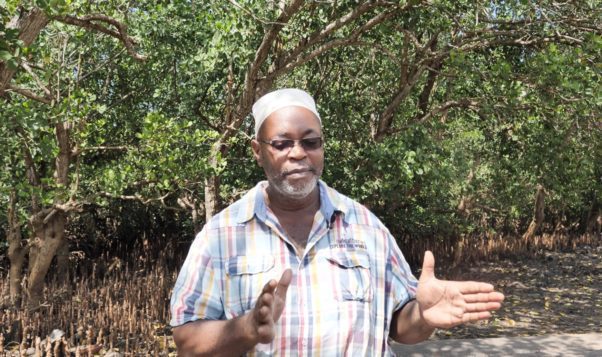
Mwakira Mohamed (Vanga BMU deputy chair) during our meeting at the Vanga BMU dock | Photo: Randall Mabwa
When Mwanatumu declared her interest, there was some resistance from some BMU members as it was difficult for some members to change. However, with the rallying support behind her, Mwanatumu was fully embraced as a community leader. Wearing the hat of the BMU chair and community activist for social matters, it is not surprising that all her community members support her. During my interview with her Mwanatumu’s passion for equality among fisheries communities, Vanga included, was evident as she puts it, “Where women are involved, then nothing is difficult to achieve as we are the oil that makes the wheels turn”. As she leads 675 members that include fishers, traders and fish processors, her role involves the management of the Vanga BMU affairs and maintenance of assets such as boats, freezers and ensuring that fisher welfare and sea safety protocols and BMU by-laws are adhered to while her goal is to see that all community members, especially women, are involved in matters of governance.
Initiating change
When Mwanatumu became a leader, it marked the beginning of change in Vanga. Prior to her tenure, the BMU had unsuccessfully written multiple grant proposals. However, upon her entry, she was able to successfully draft a proposal leading to the award of a United Nations Development Programme (UNDP) grant. The grant has been useful in assisting the community implement activities leading to the protection of their marine ecosystems through fishery closures such as octopus closures that have equally added value to the fishery chain. The chair believes that management decisions and successes require an inclusive approach and a well gender balanced BMU membership.
As a leader, I feel that I have come in as the light for my community… In meetings, I am usually the only woman and I give my opinion without fear. If I am quiet, the men ask me why I haven’t given my opinion.” – Mwanatumu Kadau
Taking action
To initiate more change, Mwanatumu has made the use of multiple BMU working committees targeting the improvement of fisheries in Vanga. These committees comprise members who are tasked with the daily running of the BMU while reporting to the chair. A good example is the community fishery closure committee whose mandate is to prevent overfishing and conserve fisheries.
Also, the same committee has been instrumental in implementing community closure patrols from two to four times monthly leading to reduced destructive fishing practices such as the use of dynamite bombs known as ‘mabomu’. Under her leadership, Mwanatumu was able to revive the old and unused BMU boat that has since created employment opportunities for up to 50 fishers.
Evident to the change is the fact that women member numbers have increased from 20 to 250 since she joined the BMU as its chair. While the majority of these women are fish processors known locally as ‘Mama Karanga’, some are also dealers who buy from the BMU and sell to major markets in the nearby towns of Ukunda and Diani in Kwale County. To drive inclusivity, Mwanatumu has engaged youth-led initiatives such as the Vanga Environmental Self-help Group. These engagements leading to partnerships provided educational sessions aiming to engage women in governance.
Championing equality
In local fisheries, BMUs are affected by many issues, among them gender inequality. The Vanga fisheries community has been advantaged by having a leader like Mwanatumu who has continued to use her position to encourage and challenge more women to participate in governance matters and lend their voice to fisheries management. Mwanatumu is aware of the power that women have and understands that a successful fisheries community requires the involvement of women. What are her aspirations? Mwanatumu stated that she intends to see more women get involved in leadership and that they cannot be overlooked as they subtly and directly influence the kind of fish to be caught and markets for fish. As we wrap up our visit to Vanga, it is clear that this community has embraced change and Mwanatumu is more than happy to call on other women to be empowered.
They shouldn’t see the BMU leadership as a male only affair. Women should know that they also have the responsibility to bring change to the community”
Mwanatumu’s community and the Vanga BMU are supported by COMRED, in partnership with Blue Ventures.


